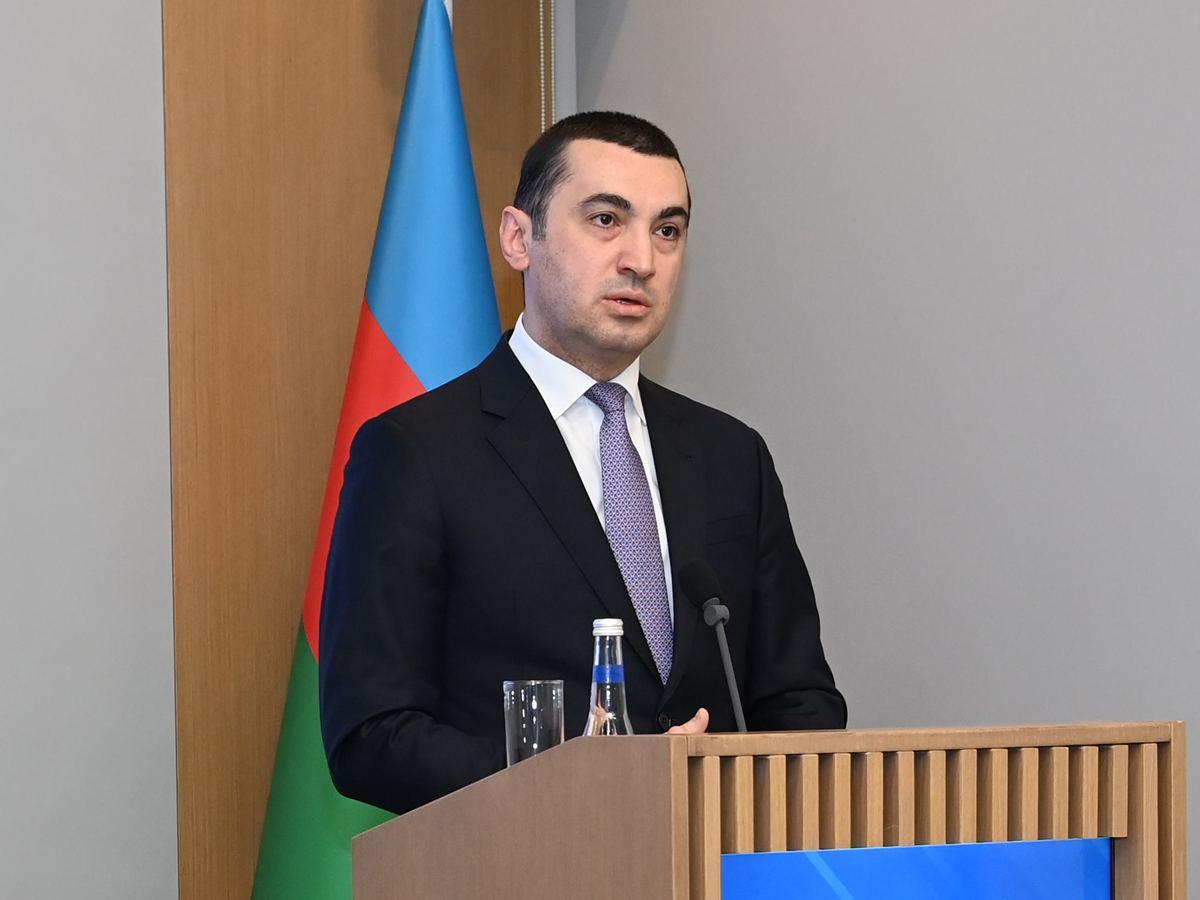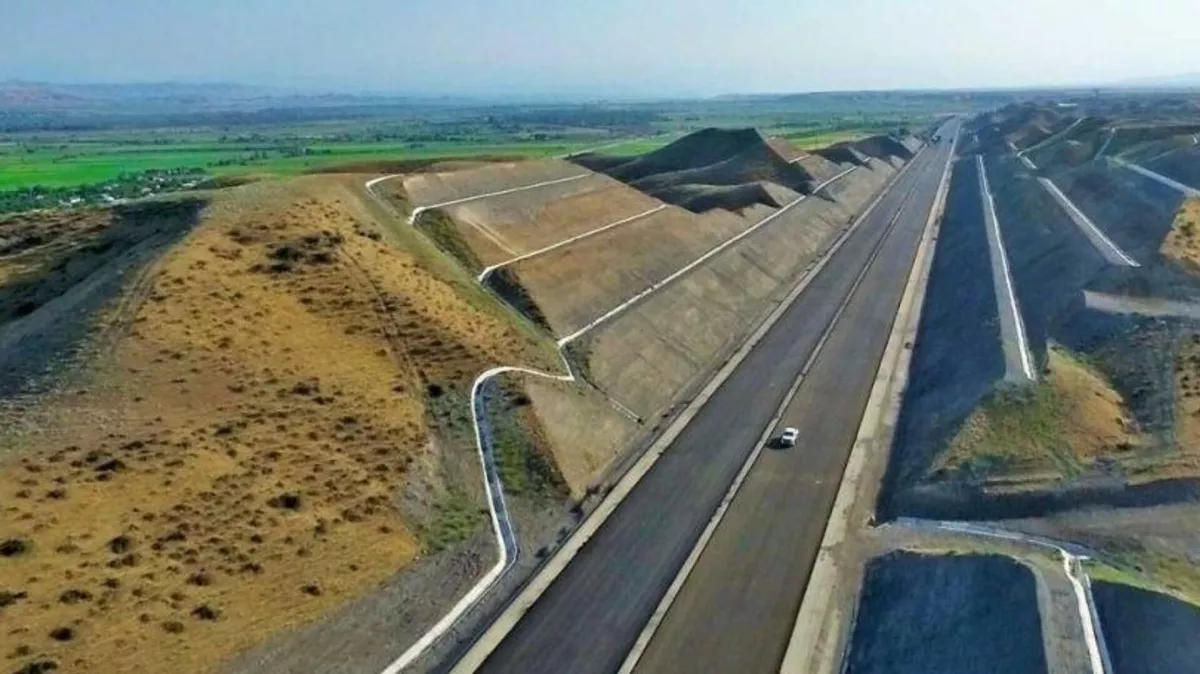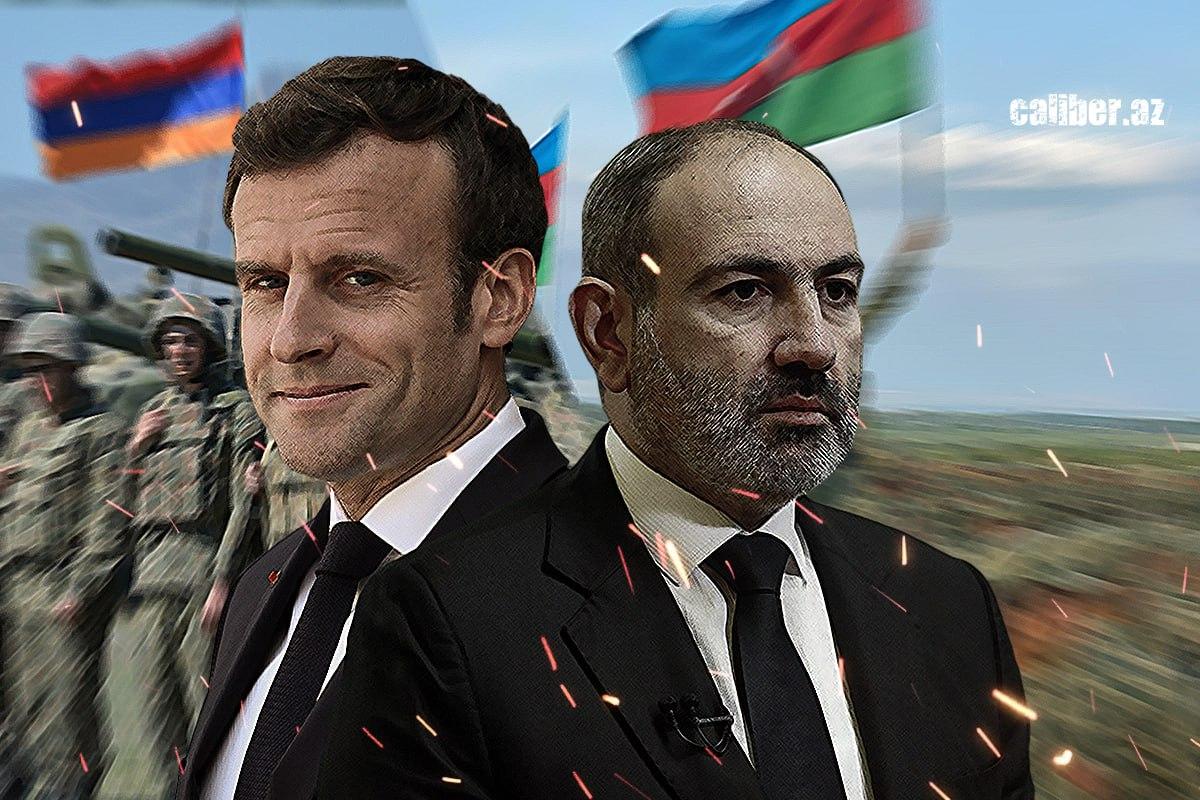In pursuit of peace: Azerbaijani MFA reviews progress and challenges Autumn of anticipation
In an interview with Report news agency, Aikhan Hajizada, Spokesman for the Ministry of Foreign Affairs of Azerbaijan, provided insights into the current state of Azerbaijan's foreign policy, particularly focusing on the peace settlement with Armenia. Here’s a summary of the key points discussed regarding the ongoing peace process.
Peace talks
Hajizada revealed that negotiations between Azerbaijan and Armenia over the initial draft proposed by Azerbaijan have been ongoing since October 2022. The foreign ministries of both countries have been actively exchanging proposals and comments on the draft agreement.
“To date, there have been 10 exchanges of comments,” Hajizada noted. The most recent feedback from the Armenian side came at the end of August, approximately 70 days after Azerbaijan had submitted its comments. This delay highlights Yerevan's tendency to slow down the peace process, according to Hajizadeh.
The diplomat also highlighted that the most recent meeting between the Foreign Ministers of Azerbaijan and Armenia took place on July 10, 2024, in Washington, facilitated by US Secretary of State Antony Blinken. As of now, there is no confirmed date or location for the next meeting. “Azerbaijan remains committed to continuing the negotiations,” Hajizada emphasized.
During the interview, it was highlighted that, in recent weeks, Armenian officials have primarily issued contradictory statements about the peace agreement, which distort the realities of the negotiation process.

As it stands, the Armenian side proposes signing a peace agreement based on the currently agreed provisions. The Azerbaijani side finds this approach unacceptable and has communicated this position clearly. “There is such a rule that a document is not considered agreed until all its clauses are agreed,” explained Hajizada. “Negotiations on the project are held behind closed doors and the details are not disclosed to the general public. We can only say that about 80 per cent of the clauses have been agreed at this point. Unagreed clauses cannot simply be eliminated. For the peace agreement to be sustainable and successful, it is necessary to clarify the remaining problematic issues in a number of areas.”
Hajizada also reiterated that for the draft agreement to be signed, Armenia must first amend its constitution, which currently retains territorial claims against Azerbaijan.
Zangezur Corridor
The diplomat emphasized Azerbaijan's longstanding interest in opening regional communications and highlighted Armenia's obligations under the Trilateral Statement signed by Azerbaijan, Russia, and Armenia on November 10, 2020. He pointed out that the ninth paragraph of the statement outlines Armenia’s specific obligations and the organization of control over transport communications. “However, Armenia has not fulfilled its written obligations for almost four years regarding the opening of communications connecting the western regions of Azerbaijan with the Nakhchivan Autonomous Republic,” the diplomat noted.

Thus, Baku reiterated its demand for Yerevan to adhere to the principles outlined in the Trilateral Statement. The Foreign Ministry representative pointed out that Armenia had been obstructing the unblocking process in every possible way. Consequently, Azerbaijan is exploring alternative methods to open communications. In this context, the diplomat mentioned an agreement to construct a road and railway through Iranian territory, which would establish direct transport links with the Nakhchivan Autonomous Republic.
Mine threat
During the interview, the issue of the mine threat was prominently discussed. It was highlighted that, following the conclusion of the Patriotic War, Armenia had violated its obligations by using the Lachin road for illegal purposes, including the continued import of mines. In 2022, over 2,700 anti-personnel mines, produced in Armenia in 2021, were discovered in the Lachin and Kalbajar districts. Additionally, more than 500,000 mines were found within the area under the temporary control of the Russian peacekeeping contingent after the anti-terrorist operation.
In the post-conflict period, mines have claimed the lives of 377 Azerbaijanis, with incidents occurring nearly every day. Among the victims, 69 individuals — 54 civilians and 15 military personnel — lost their lives. The diplomat noted that Armenia had long denied having maps of minefields. However, under international pressure, Armenia eventually provided maps for a limited area, but their accuracy was only 25 per cent. This inaccuracy is evident from the fact that over 55 per cent of recent mine incidents occurred outside the areas indicated on these maps.
Baku continues to urge the international community to take decisive action to support the removal of mine threats in Azerbaijan, including pressing for the provision of accurate minefield maps from Armenia.
France
Hajizada highlighted France’s overtly anti-Azerbaijani position during and after the 2020 Patriotic War. He pointed to Paris's initiatives against Baku in various international forums, including the UN Security Council, the European Union, Francophonie, and other global platforms. These actions, according to the diplomat, demonstrated that France’s claims of neutrality as a mediator were wholly unfounded.

Summarizing the situation, the Foreign Ministry spokesman stated, “Despite the campaign of vilification against Azerbaijan, the channels for dialogue have always remained open on our side. We expect the French side to stop such actions and end the policy against Azerbaijan that undermines regional stability.”
In conclusion, Azerbaijan remains open to dialogue aimed at achieving long-term peace and stability in the South Caucasus. However, the Armenian authorities' militarization efforts, supported by foreign assistance — particularly from France — pose a significant threat to the peace process.








